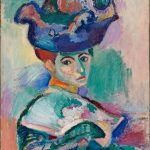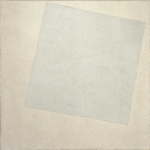Louis Aragon (3 October 1897 – 24 December 1982) was a French poet who was one of the leading voices of the surrealist movement in France. He co-founded with André Breton and Philippe Soupault the surrealist review Littérature. He was also a novelist and editor, a long-time member of the Communist Party and a member of the Académie Goncourt. After 1959, he was a frequent nominee for the Nobel Prize in Literature. (Wikipedia)
Aragon on Everyday Time
The ruins of the modern, everything that escapes but also haunts it, reveal modernity’s true shape.
- Aragon, Louis. Paris Peasant. Trans. Simon Watson Taylor. Boston: Exact Change, 1994.
Aragon Videos
Parisian Arcades:
Paris Arcades (with Walter Benjamin):
Walking Paris’s Famous Shopping Arcades: Jouffroy, Verdeau and Panoramas:
Parc des Buttes Chaumont – Travel in Paris 5:
You Won’t Believe This Is Paris I Parc Des Buttes Chaumont:
A Walk Around Parc des Buttes Chaumont, Paris:
Un chien andalou
If you want to see an example of Surrealism in another medium–here, film–check out this extraordinarily famous and influential film, by Luis Buñuel and Salvador Dalí, dating from 1928. It’s only 15 minutes long…
- Benjamin, Walter. “Surrealism.” Reflections: Essays, Aphorisms, Autobiographical Writings.
Ed. Peter Demetz. Trans. Edmund Jephcott. New York: Schocken, 1986. 177-192. - Breton, André. “Excerpts from The First Surrealist Manifesto.” Surrealists on Art. Ed. Lucy R. Lippard. Englewood Cliffs, NJ: Prentice-Hall, 1970. 10-21.
- Breton, André. Surrealist Manifesto
Modernist Visual Culture
- Masolino da Panicale: Healing of the Cripple and Raising of Tabitha (1424)
- Leonardo da Vinci, The Last Supper (1490s)
- Edvard Munch, The Scream (1893)
- Henri Matisse, Woman with a Hat (1905)
- Pablo Picasso, Girl with a Mandolin (1910)
- Marcel Duchamp, Fountain (1917)
- Kasimir Malevich, Suprematist Composition: White on White (1918)
- René Magritte, The Treachery of Images (1929)
- Piet Mondrian, Composition with Red, Blue, and Yellow (1930)
- Salvador Dalí, The Persistence of Memory (1931)
- Salvador Dalí, Lobster Telephone (1936)
- Meret Oppenheim, Object (1936)
Writing of the Certa, Aragon says: “I wish to devote a long and grateful paragraph to this café’s drinks. And first of all to its port” (77). Port is a fortified wine (wine to which a spirit like brandy has been added) traditionally produced in the Oporto region of Portugal—hence the name. For well over four hundred years, the major market for port has been the UK: British merchants could rely on the supply from Portugal, while trade with France was frequently interrupted by politics or warfare; fortified wine weathered better the longer voyage around Galicia and past the Bay of Biscay. By the first half of the nineteenth century, 70% of British wine imports were from Portugal, while 80% of Portuguese port was destined for British shores. Even today, the best-known names in producing and shipping port are distinctly non-Portuguese: Sandeman, Cockburn’s, Taylor’s, Graham’s. For a Frenchman such as Aragon to drink port, then, could be seen as doubly perfidious: not only consuming the wares of a continental competitor, but also indulging the tastes of the old enemy across the Channel.
Aragon Questions

- What do we expect of a novel?
- Why might someone want to write a “novel-that-is-not-a-novel”? What’s wrong with the plot and structure that we might usually expect from a book like this?
- If Paris Peasant doesn’t follow the usual logic of narrative and plot, what (if any) logic does it follow?
- How does Aragon’s book try to portray the “reality” of Paris in the early twentieth century?
- If this is Surrealism, what relationship do you think it has to realism?
- Aragon spends a lot of time detailing two sites in Paris: an arcade and a public park. Why? What attracts him to these places?
- What are the connotations of the arcades as passages? Passages to where?
- What is Aragon’s attitude to modernity?
- What is the role of the narrator here? What do we know about him?
- What does this book have to say about how to be an artist or writer–perhaps particularly an avant-garde artist or writer?
- Is Paris Peasant “political”–whatever that might mean? If so, how?
- What is the role of the images (and graphics) in the text? What is the relationship between text and image here?
- How does the book portray women? Find an example.
- What is the legacy of avant-garde movements such as Surrealism? Do we see examples of similar styles and approaches today? Where?
The following questions are taken from your blog posts…
About / regarding the book:
How did the title of this book compare to what you read within it?
What makes a novel a novel, if this is a “novel-that-is-not-a-novel”?
When, if ever, do you find yourself allowing your mind to run free?
Which was the chapter in this text that you found the most challenging to read, and why?
What was it like for all of you to be reading a text like this? Did it make you feel any different from when you read a regular novel?
Did you resonate with the unconventional structure of Aragon’s prose? did the lack of clear narrative logic alienate or entice you?
What do you think inspired Louis Aragon to write something so bold and almost controversial?
How do you picture the narrator? Do you think that the term “Paris peasant” can be applied to him?
What is the unifying theme or themes of this book?
What were ideals or themes of Louis Aragon’s novel that were indicative of the time period and how do we view those ideals/themes now?
Do authors have a certain way they want you to read their book? / how does this impact what the reader gets out of the text?
What did you think about the format of the book? Do you think that the publishing choices of the book are for practical reasons or if it could be a reflection of how this novel takes a unique approach from other books. Do you like reading books with a firm plot structure or do you prefer this whimsical approach?
Time:
How do you depict the idea of time and the world vanishing?
Do you prefer books that stick to more simple/straightforward timelines, or do you prefer when the timeline is more complicated like in ‘Paris Peasant’?
Drawing comparisons and connections:
Did you find this book harder to read than Proust’s?
Do you agree that this novel applies to our current society and how so?
Why are we so opposed to new concepts and techniques? Though I believe this is more true in the past and we are more open to new ideas today, why is our initial reaction to reject it? What has made us more open to new writing styles today?
Are there any authors or artists who’s work Louis Aragon work makes you think of?
Has surrealism had an impact on current artists or authors you enjoy?
On Relationships:
Is it human nature to want to be pursued rather than pursue someone? As a woman, wouldn’t you rather be pursued than make the first move? If it wasn’t for societal pressures, would men rather be pursued than make the first move? Is this concept necessarily a bad ‘norm’ for women?
Isn’t it a good thing for people, in general, to know what they want, and to (respectfully) go after what they want?
On Modernization:
How do you feel about the modernization of our world?
What kind of attitude do you think Aragon has toward modernism? Does Aragon seem hopeful for the new changes modernism can bring? Does he seem to be against modernity, as it poses a risk that “what was known until today could be completely gone tomorrow?”
To what extent can Aragon’s portrayal of the “wake” of modernism inform us of modern-day changes and developments?
On Surrealism:
Do you feel like this novel gave you a proper understanding of the concept of Surrealism? Or do you, like me, find it hard to make any significant conclusions about the importance of surrealist ideology? If you do understand, how would you define Surrealism solely from what you’ve read in this novel?
How are things so believable that they can sometimes be counterintuitive and vice versa? And regarding contradiction, is it possible to have a contradiction within a paradox? If there are any boundaries, where might they be?
While recognizing the broad usage of surrealism in Aragon’s work, can we maybe point to smaller and specific instances of its usage?
Were you able to make connections with any “surrealism” in your life and the way that Aragon depicts it in the text while reading.
Do you guys enjoy the surrealism movement? And also in the case that anyone has some knowledge about surrealist painters, if you enjoy the surrealist paintings or the reading of this book more.
On Philosophy:
Since the book covers multiple philosophical themes, what is the key message that the text tries to convey?
Is Aragon being disrespectful to Kant?
What does the “duality of man” mean to you? How would you define it? Do you agree that reality cannot exist without the absence of contradiction?
On translation:
On page 49, the use of the word “pessimism” is quite interesting as there is importance in the letters that make up this word. According to Google Translate, in French, it would be Pessimisme. This works but what would happen if it were a word where the English and French do not consist of the same letters? What would happen if the word was not Pessimism?
Can this story be analyzed differently if read in French?
On Drinks:
When I read page 77, I had a feeling to reread, however, I’m not exactly sure what the significance is of Certa’s port is. Which leads me to question what exactly the meaning of the drink is?
(Other) Motifs and Images:
The iron gate, hidden between coffee shops and bookshops and isolated the immoral iron gates, strikes me as one of many doors that may or may not exist in this intricate ancient area. And it’s set to be torn down. Does this imply that the dirty side of human nature will emerge from the shadows and mix with the new civilization even in the new era?













